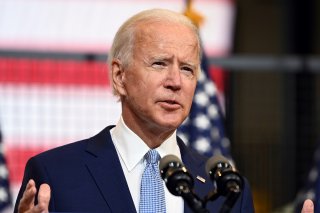Big Stimulus Check Update: How About a Stimulus Check EVERY Month?
Rep. Gomez and the other co-signatories also indicated their support for recurring payments for the duration of the pandemic – as have an estimated eighty other Congressional Democrats.
Here's What You Need to Remember: In essence, an automatic stabilizer would function as an insurance measure. If present growth trends continue, unemployment decreases, and the economy recovers from the pandemic, the need for another stimulus check would be reduced. However, if the economy enters a downturn, the checks could kick in to stimulate things once more.
The idea of a fourth stimulus payment is more topical than ever, as the final checks from the third payment – passed as part of the Biden administration’s American Rescue Plan Act in March 2020 – are being sent out. So far, more than 165 million stimulus payments from the first round of checks have been sent, with a total payout of over $380 billion.
However, even as Biden advocates for a slew of new social spending measures – many contained in the upcoming American Families Plan, including an expansion of the Child Income Tax Credit, government tax credits towards childcare expenses, and free pre-K education and community college – discussion around a fourth stimulus check has remained muted. The president has said nothing about his thoughts on the subject; when asked, White House Press Secretary Jen Psaki indicated that the Biden administration was not prioritizing the measure, suggesting instead that Congress take the initiative.
In her response, Psaki also noted an important objection to stimulus measures: they are very expensive, and given their price tag, it is not always certain that the additional value they provide to the economy is necessary or justified. Indeed, many economists’ opposition to a fourth stimulus check centers on the idea that the economy is already recovering from COVID-19 vaccinations and the end of lockdowns, and hence does not need an additional stimulus boost.
This has led seven members of Congress to suggest a compromise measure. On May 17, Representative Jimmy Gomez (D-CA) and six other members of the House of Representatives, all Democrats, proposed an additional stimulus measure built as an “automatic stabilizer.”
In essence, an automatic stabilizer would function as an insurance measure. If present growth trends continue, unemployment decreases, and the economy recovers from the pandemic, the need for another stimulus check would be reduced. However, if the economy enters a downturn, the checks could kick in to stimulate things once more. Congress might not even need to do this directly; they could pass the legislation one month, programming the measures to take effect if a certain target is not met, and have the checks sent out six months later, independent of further Congressional negotiations.
Rep. Gomez and the other co-signatories also indicated their support for recurring payments for the duration of the pandemic – as have an estimated eighty other Congressional Democrats. However, this is a much more expansive goal, and one much less likely to take place, given political considerations in Washington.
Trevor Filseth is a news reporter and writer for the National Interest. This article is being republished due to reader interest.
Image: Reuters.

